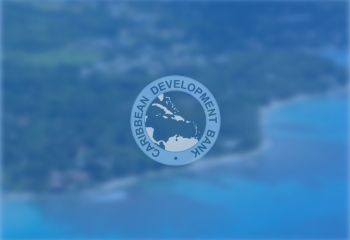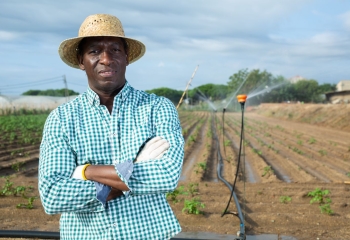The Government of Belize, with support from the Caribbean Development Bank (CDB), is continuing to make strides towards achieving Goal 6 of the United Nations (UN) 2030 Sustainable Development Agenda: Ensure access to water and sanitation for all.
An additional 2,500 Belizeans are enjoying easier access to a safe supply of water, following the completion of two water projects in the villages of Maskall and San Victor in February. The projects are delivering 70,000 gallons of clean water to residents and in the process, significantly reducing incidences of water-, food- and vector-borne, and communicable diseases, and improving the quality of life for villagers.
“In 2000, under the United Nations Millennium Development Goals, we aimed to achieve a 100 percent improved water source, in terms of ensuring all villages had access to protected hand-dug wells, hand pumps, rain catchment systems, and running water pipes to yards and dwellings, and we have achieved that,” said Ernest Banner, Coordinator, Rural Development, Ministry of Labor, Local Government and Rural Development, Belize.
“Now, under the UN’s Sustainable Development Goals, we are improving on our previously set targets, by ensuring all villages have either new or rehabilitated infrastructure to support central water systems managed and operated by the residents through local water boards,” he said.

In Maskall Village, an upgraded rudimentary water system has provided more than 1,500 residents with access to water for drinking, cooking, bathing and washing. The project entailed the construction of an elevated 20,000 gallon ferro-concrete tank, with an additional 20,000 gallon underground tank, the first of its kind in the country. The tanks connect to over 29,000 feet of distribution lines installed throughout the community.

North of Maskall, in the village of San Victor, 1,000 residents are now benefitting from upgrades to their system, which includes the construction of a new steel-framed, elevated water tank with capacity for 30,000 gallons. The tank, constructed at the highest point in the village, includes the required piping and accessories, installation of a submersible solar water pump, and a chlorinator. A solar-powered system, which, after two days of sunlight can fill the tank, is also a feature of the project.

Prior to the upgrades, villagers relied on untreated water from dug wells, which resulted in water-borne diseases, and during extreme dry spells, trucks coming into the community supplied the only source of water.

“Access to clean water is critical to the achievement of the Sustainable Development Goals,” said George Yearwood, Portfolio Manager (Ag.), Basic Needs Trust Fund (BNTF), CDB. “The Bank’s partnership with the Government of Belize on the Maskall and San Victor water projects has further advanced the country’s progress in meeting its development targets, among which is ensuring that all Belizeans, by 2030, can easily access safe, clean water to meet their daily needs,” he said.
The San Victor and Maskall water projects were funded through a grant from BNTF, with counterpart funding from the Government of Belize, and implemented by Belize Social Investment Fund (BSIF). BSIF is a government implementing agency, which addresses the basic needs of Belizeans in the areas of water, sanitation, health, education, human development and social transformation, as enshrined in Government’s policy to alleviate poverty.
Since BSIF’s inception in 1996, CDB has assisted the Government of Belize with supplying potable water to more than 170 communities across the country. Systems are now required in fewer than 10 communities.

